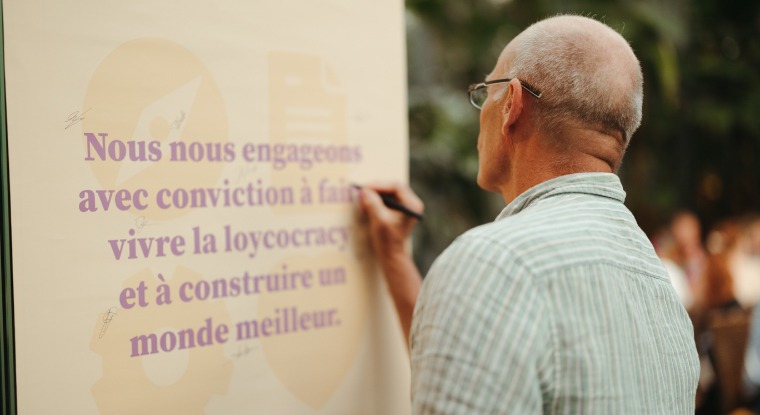
Marriage for all: practical consequences
In July 2022, Switzerland joined the thirty or so countries that have introduced marriage for all: from now on, same-sex couples can marry or convert their registered partnership with the civil registry and enjoy the same rights as opposite-sex couples. Our partner CJE, Avocats, Conseillers d’Entreprises takes a closer look at the practical consequences of this law.
From July 1, 2022, same-sex couples will be able to marry or convert their registered partnership into a marriage, thereby enjoying the same rights as opposite-sex couples. Same-sex marriage is equivalent to marriage between a man and a woman, thus putting an end to the unequal treatment of same-sex and opposite-sex couples.
As of July 1, 2022, it will no longer be possible to enter into new registered partnerships in Switzerland. Couples may opt for marriage only. Existing registered partnerships, on the other hand, can be maintained without the partners having to make a special declaration.
Couples in a registered partnership may submit a joint declaration to the registry office, requesting that their union be converted into a marriage. The legal provisions of marriage law apply from the moment of conversion of the registered partnership to marriage, with no retroactive effect. As conversion is not automatic, those who so wish may continue their registered partnership, as mentioned above. The two institutions have different civil status designations: people are respectively “married” or “in a registered partnership”.
Current marital status
A person’s civil status data is used for personal identification and to prove that an individual belongs to a legal community. Swiss law recognizes the following civil statuses:
- single
- married
- divorced
- widowed
- unmarried – in a registered partnership
- judicially dissolved partnership
- partnership dissolved by death
- partnership dissolved after declaration of absence
Responsibilities of the Civil Registry
Swiss nationals:Swiss nationals wishing to obtain a document proving a civil-status event occurring in Switzerland (birth, marriage, registered partnership, recognition of child, change of name, divorce, dissolution of partnership, establishment or annulment of parentage, declaration of absence, death, etc.) should contact the civil-status office which registered the event. Civil status and family status documents (individual civil status certificate, family certificate, partnership certificate, registered family status certificate, etc.) are issued by the civil status office of the place of origin. Non-Swiss nationals: if the person concerned does not have Swiss nationality, the civil registry office of the place of residence or of the place where the event took place is responsible for disclosing data relating to civil status and family status.
Marriages concluded abroad
A marriage validly celebrated abroad is in principle recognized in Switzerland, whether it is a same-sex or opposite-sex marriage.
- Marriage on or after July 1, 2022: marriages on or after July 1, 2022 are recognized as marriages in Switzerland.
- Marriage before July 1, 2022: Couples who married abroad before July 1, 2022, and whose marriage was recognized as a registered partnership in Switzerland, can apply to update their entry in the Swiss civil register from July 1, 2022.
Concubinage – what you need to know
What is cohabitation?
Cohabitation is living together without being married or in a registered partnership. Cohabiting couples may be heterosexual or homosexual. This form of cohabitation does not require compliance with any particular rules, but it does not entitle you to the same rights as in the case of marriage or registered partnership.
Cohabitation and death
Cohabitants are not entitled to an AHV survivor’s pension. The cohabitee is not a legal heir. On their death, the surviving partner does not automatically inherit their property. Each partner can, however, name the other as beneficiary in his or her will.
BVG and the cohabiting partner
Since 2005, cohabitants have been included in the circle of beneficiaries, provided they meet certain conditions and are authorized to do so by the pension fund regulations. There are therefore two possible scenarios: either the pension fund treats the cohabiting partner as a married spouse, or it does not take this into account at all. If the pension fund regulations so permit, the cohabitee may join the circle of beneficiaries on the death of his/her partner under the following non-cumulative conditions:
- That she was dependent on him.
- He/she must have lived with him/her continuously for at least five years immediately prior to death.
- He/she has supported one or more children in common.
These three conditions are not cumulative. Only one is required for the cohabitee to receive the death benefit. Like a spouse, he/she must also be at least 45 years of age if there are no dependent children in common. If the surviving cohabitee is already receiving a survivor’s pension from a previous spouse, he/she is not entitled to a second pension. Pension foundations that include cohabiting partners in their regulations generally require a formal declaration of cohabitation, and sometimes even proof of residence. A couple who do not live together is not a cohabiting couple within the meaning of jurisprudence.
Maternity and paternity allowances
Foreign insurance periods taken into account
Periods of compulsory insurance completed in an EU or EFTA state are taken into account to determine whether the minimum insurance conditions are met. Periods of insurance certified by an EU or EFTA state must be taken into account by Switzerland without reservation, even if they were not considered as periods of insurance under Swiss law. The corresponding certificate for periods of employment in an EU or EFTA member state must be issued by the member state concerned, and must be presented by the employee at the time of application. If the certificate is not available at the time the application is submitted, the compensation fund will request it from the foreign insurance organization in the state where the employee last worked.
Entitlement to widow’s and widower’s pensions
Under what circumstances is a divorced woman entitled to a widow’s pension?
Divorced women are entitled to a widow’s pension when their ex-husband or ex-wife dies:
- if she has children and the dissolved marriage lasted at least ten years, or
- if she is over 45 years of age at the time of the divorce and the dissolved marriage has lasted at least ten years, or
- if the youngest child is under 18 when the divorced person reaches the age of 45.
If the divorced woman meets none of these conditions, she is entitled to a widow’s pension until her youngest child reaches the age of 18. A woman divorced from her mother is also considered a widow with child if she was married to the mother at the time of the birth, and the child was conceived in accordance with the provisions of the law on medically assisted procreation, and there is therefore a parent-child relationship (art. 255a, para. 1, CC). If, in the event of divorce, the marriage was established by the conversion of a registered partnership, the duration of the registered partnership is added to the years of marriage.
Under what circumstances is a married man or man in a registered partnership entitled to a widower’s pension?
When the wife or husband of a married man or man in a registered partnership dies, he is entitled to a widower’s pension if, at the time of widowhood, the husband’s wife has one or more children (of any age). Children of the deceased spouse who live in the same household as the wife or husband and are entitled to an orphan’s pension are treated as children. This also applies to foster children who were previously cared for by the married or registered partner, provided they are adopted after widowhood. If the registered partner dies, he or she is treated in the same way as a widower. In its judgment of October 11, 2022, the Grand Chamber of the European Court of Human Rights ruled that there was inequality of treatment contrary to the European Convention on Human Rights (ECHR) due to the extinction of the claimant’s right to a widower’s pension on the majority of his last child, an extinction which is not provided for a widow in the same situation. Switzerland is obliged to comply with this judgment and to put an end to the violation of the law as soon as the judgment enters into force on October 11, 2022. The legal bases must be adapted accordingly, in compliance with the legislative procedure. As this procedure may be relatively lengthy, the adaptation will only take effect at a later date. Until then, the transitional arrangements in force since October 11, 2022 apply to widowers with children. Their entitlement to a widower’s pension is no longer extinguished when their youngest child reaches the age of 18, and the pension continues to be paid beyond this age. The ECHR ruling does not apply to childless widowers or divorced men. Childless widowers continue not to be entitled to a widower’s pension on the basis of this ruling, and for divorced men, entitlement to a widower’s pension lapses in all cases when their youngest child reaches the age of 18. Nor does the ECHR ruling apply to cases in which the withdrawal of the widower’s pension on the basis of the youngest child’s majority came into effect before October 11, 2022.
Under what circumstances is a divorced man entitled to a widower’s pension?
When the ex-wife dies, the man is entitled to a widower’s pension for as long as he has children under the age of 18.
This content was written by our partner CJE, Avocats, Conseillers d’Entreprises.

















